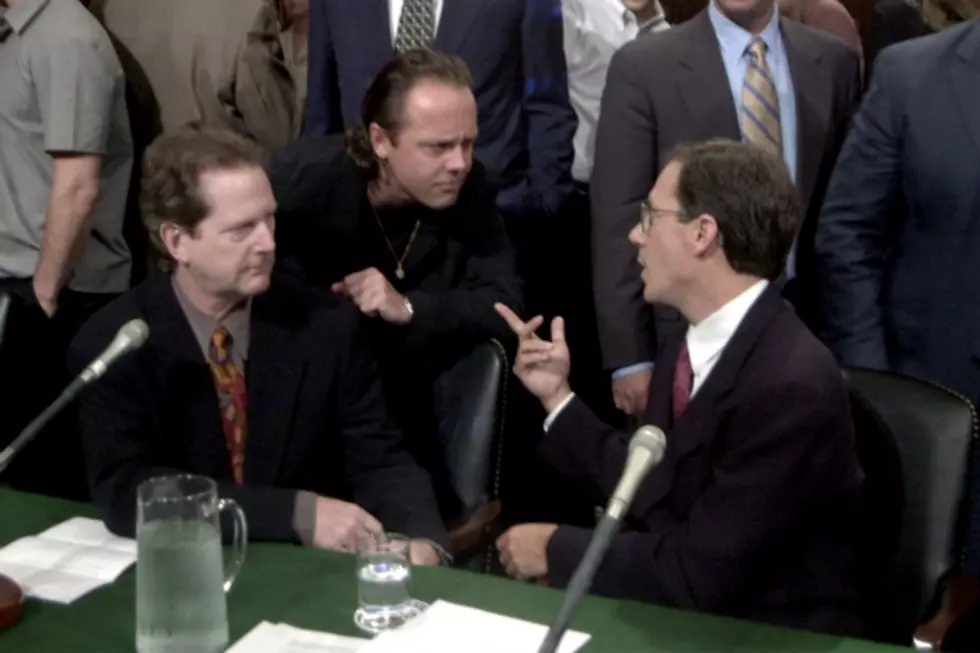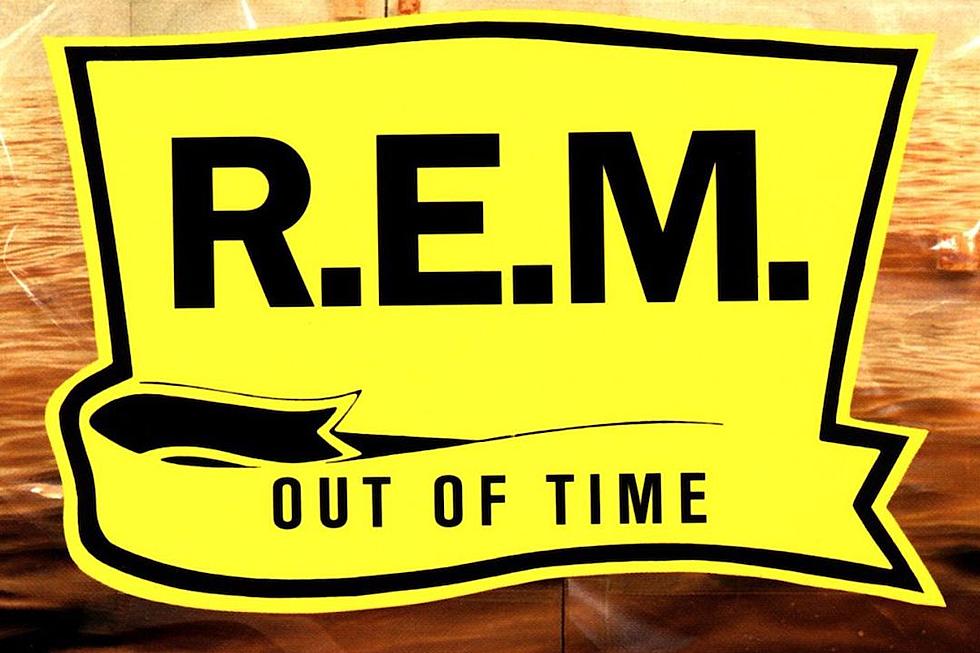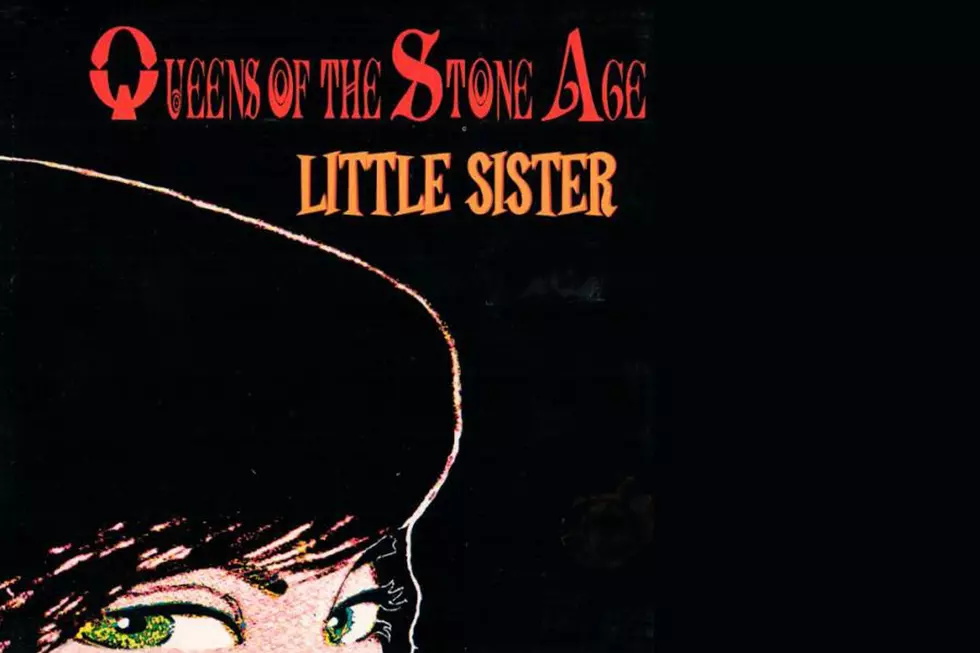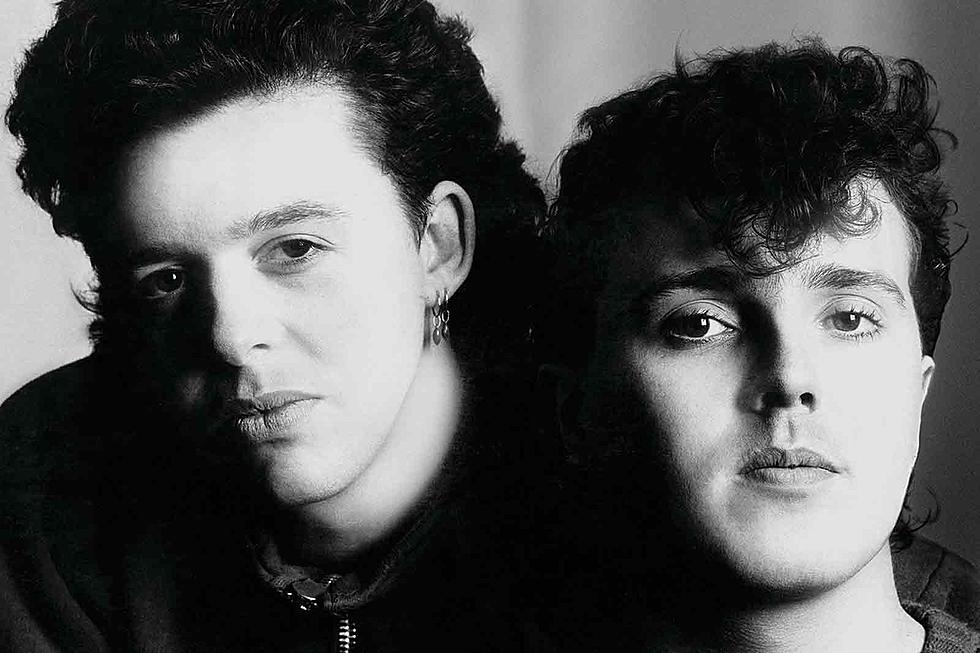
When Napster Were Ordered to Stop Trading Copyrighted Music
"Internet." It's a noun that has lost most of its original meaning, like "horsepower" or "piano."
In the mid-'90s, though, the reality of an interconnected network of computers was very much in the foreground, as was the potential for such technology. Those putty-colored boxes sitting beneath our desks (connected to monitors the size of microwave ovens that overwhelmed our desktops) suddenly could do things beyond word processing and Tetris. Bulletin boards, chat rooms, email -- the novelty of being connected real-time to other people's putty-colored boxes was nearly as exciting as whatever was being shared via those venues.
The race was on to do interesting things with all of that interconnection. In 1994, Netscape introduced Navigator, and by early 1995 it was on its way to being the first widely adopted web browser. A new audio file compression standard was introduced that year, too: MP3. The world was still on slow dial-up connections then, and computer memory was pricey. Compressing large audio files down to manageable sizes was the breakthrough that enabled music to jump from CD players to hard drives. The first song compressed into the new format was Suzanne Vega's "Tom's Diner."
Here were the three building blocks of the music industry's future: the internet, the web browser and the digital audio file. All that remained was a killer app that would tie it all together.
Enter Shawn Fanning, an 18-year-old student at Boston's Northeastern University. Fanning was active in the hacker underground, where he went by the name "Napster." According to fellow hacker and future Napster architect Jordan Ritter in a Fortune piece on the company:
The roots of Napster are actually in the computer security world. ... Myself ... and a few other guys founded this group. And Fanning, er, Napster, was one of those people as well. ... Fanning started to solicit the group for help on this project he was working on, which I believe at the time was called Music Net.
As technologists, as hackers, we were sharing content, sharing data all the time. If we wanted music, we would go into some [Internet Relay Chat] channel, and hit up a bot there and download music from it. It was still kind of a pain in the ass to get that stuff. So Fanning had a youthful idea: Man, this sucks. I’m bored, and I want to make something that makes this easier.
The basic idea was very simple: There are millions of computers connected to the internet, many of which have MP3s on their hard drives. Stick a server out there with a program the indexes all of those files, then let users copy songs from one PC to another. This became known as peer-to-peer file sharing, and it was the killer app that digital music was waiting for.
Music Net took the name of its inventor, and in June 1999 Napster launched. Millions -- billions -- of MP3s started flying around the internet courtesy of Fanning's brainstorm. The Recording Industry Association of America (RIAA) noticed. Hilary Rosen was the RIAA chairperson at the time. In the same Fortune article, she recalled:
Once, I brought a computer into a meeting of the RIAA board, which was all of the heads of the record labels across the country at the time. And we basically played Name That Tune with the heads of the record companies, who were naming some of their current and new releases, some of which hadn’t been released commercially.
On Dec. 6, 1999, the RIAA filed suit against Napster on behalf of the major labels for copyright infringement. What was developing was analogous to a legal gunfight at the OK Corral, pitting new technology against intellectual property rights. A lot was at stake, not just for Napster but for all of Silicon Valley, and on the other side of the table sat the traditional music industry, with everything to lose.
Napster needed time both to mount a defense and to seek more venture funding to help with the expense of the lawsuit. Their attorneys managed to get the court hearing delayed until the summer of 2000, which bought them the time that they needed. During those seven months, millions more users signed up and billions more songs changed hands.
It seemed like the more trouble Napster found itself in, the more publicity the company garnered.
And the more publicity that Napster received, the more lawsuits that rolled in. On April 13, 2000, Metallica sued Napster after tracing the leak of their unreleased track, "I Disappear," back to the company's file-sharing app. In addition to demanding that Napster not allow their songs to be shared, Metallica also demanded that the 300,000 users who swapped the bands' songs be banned from the site. Drummer Lars Ulrich made the point via a publicity stunt wherein he brought 60,000 pages of usernames to Napster's headquarters.
Rather than attract sympathy for artists, Ulrich's stunt led many observers to consider the band spoiled, rich and out of touch with the fans. Napster may have started as an app that evolved into a legal battle, but it was now morphing into an all-out war for the heart of music. Artists lined up either behind "the kids" or intellectual rights. Ulrich (rights) debated Chuck D (kids) on the Charlie Rose Show. Dr. Dre filed his own, separate lawsuit against the company, as did A&M Records. Everybody had an opinion.
On June 1, 2000, CNET reported that "Music," Madonna's upcoming single, had leaked online. The cut was scheduled for an August release, so neither the artist nor her label were too pleased. The website reported:
Madonna's recording label, Warner Bros. Records, followed with a stiffer warning.
"Any site that posts or makes available our copyrighted material without our consent runs the risk of civil and criminal prosecution," the label said.
But in Napster's case, at least, the threat borders on redundancy.
The leak didn't seem to hurt "Music," which sold over a million copies upon release, nor did it hurt Napster, which once again enjoyed a little free press. Ulrich continued his campaign against the company.
On July 11, 2000, Ulrich testified before the Senate Judiciary Committee on Downloading Music on the Internet. He was joined by Roger McGuinn from the Byrds, who offered a pro-downloading point of view, as captured by CNN:
When you sign a contract that says you are going to get 15 percent. There are ways the record companies have of not paying these royalties. And in my experience, even though we've had number one hits with "Mr. Tambourine Man" and "Turn, Turn, Turn," I saw nothing but the advance, which was, divided five ways, it was only a few thousand dollars apiece.
And with the advent of MP3.com, I'm getting 50 percent of the CDs that come out now, I think it's a wonderful thing....I can see how someone might be if they were not being paid their publishing rights. And I think that MP3 servers should make deals with the publishing companies like -- they should make deals with BMI and ASCAP and have proper royalties paid to the artist.
But as far as my experience in the record business, the artist doesn't always receive royalties from the record companies, and that has been my experience.
Which brings us to July 26, 2000, Napster's and the RIAA's day in court. Judge Marilyn Patel listened to arguments from both sides before issuing an injunction preventing Napster from "copying or assisting or enabling or contributing to the copy or duplication of all copyrighted songs and musical compositions of which the plaintiffs hold rights" until the case went to trial later that year. It was the decision that essentially killed the company, though it would take almost eight years for the case to play out completely.
Napster as a peer-to-peer file-sharing company shut its doors in July 2001. The name and logo were purchased by Roxio at bankruptcy auction, which sold them to Best Buy in 2008. Best Buy sold the name to Rhapsody three years later, where it survives as a paid service.
Shawn Fanning went on to found several more technology companies. To date none have had the success -- or infamy -- of his first, but he clearly hasn't given up hope. In 2013 he told Esquire: "The collective effort to improve the Internet is always going to defeat those trying to exploit it."
We'll give the last word to Fanning's former business partner, Sean Parker, who in 2011 described how a little company coming soon to the U.S. is "the realization of the dream that Fanning and I had with Napster."
The 21 Most Embarrassing Rock Moments of the Past 30 Years
More From Diffuser.fm









